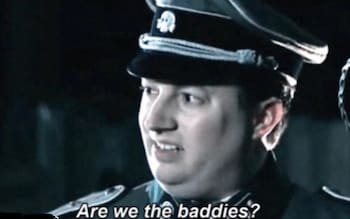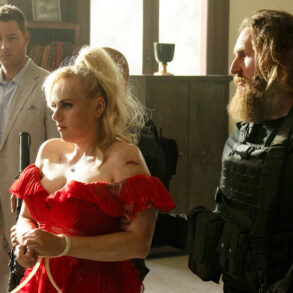A former Post Office PR chief admitted that he has asked himself if “we are the baddies’ in the wake of the wrongful prosecution of hundreds of sub-postmasters.
Giving evidence to the Post Office Horizon IT Inquiry on Tuesday, Mark Davies was grilled on responses he gave to journalistic enquiries which questioned the accuracy of the Fujitsu IT system.
Mr Davies, who joined the Post Office as its communications director in 2012 and stayed with the organisation until 2019, is currently head of communications and campaigns for the Refugee Council.
The PR boss was shown a variety of internal emails – one of which referred to the freelance journalist Nick Wallis’ coverage as “garbage”, and another that mocked how “fascinating it was to be at the heart of a corporate cover-up.”
He was then questioned on his own ethics.
Addressing Mr Davies, Julian Blake, counsel to the inquiry, asked: “Had you ever asked yourself, might we, in fact, be the baddies?”
Responding, he said: “I’ve asked myself that question, I’ve asked myself many, many questions on this issue many, many, many times over the course of the last few months, over the course of the last few years, and throughout the whole period I was dealing with these issues.”
The question bears striking similarities to a Mitchell and Webb sketch in which two Nazi soldiers realise, upon questioning each other, that they may be on the wrong side of the conflict.
David Mitchell’s character turns to his Nazi friend Hans, played by Robert Webb, and asks if he has noticed the skull motif on their caps, adding: “Are we the baddies?”

The question bears striking similarities to a Mitchell and Webb sketch featuring two Nazi soldiers
Mr Davies went on to say how he and his colleagues “really believed” they were doing the “right things”, referring to the appointment of the forensic accountants Second Sight to conduct an independent investigation into Horizon concerns as one example.
He also accepted that “with the benefit of hindsight” some of his emails “look ludicrous”.
More than 900 sub-postmasters were wrongfully prosecuted between 1999 and 2015, after Horizon software incorrectly recorded shortfalls in their branch accounts.
One sub-postmaster, Martin Griffiths, took his own life in 2013, while he was being pursued for alleged shortfalls amounting to £100,000.
The inquiry was shown internal emails between Mr Davies and colleagues that discussed an email sent by Alan Bates informing Post Office executives that the sub-postmaster was dangerously ill in hospital following the incident. He died in hospital a week later.
Mr Davies asked colleagues: “Please can we line up a specialist media lawyer in case we need urgent advice this evening.”
When quizzed about this instruction and whether he was seeking to protect the reputation of the Post Office, Mr Davies claimed the request for a lawyer’s assistance was because he wanted guidance on reporting suicide.
‘Vigorous recruitment process’
In his witness statement, Mr Davies detailed a journalist career of 14 years, with roles at CNN and the BBC, before he became a special advisor for Tony Blair’s Labour administration in 2004..
In 2005, Mr Davies began working for Jack Straw, the foreign secretary at the time – a working relationship that would continue until 2010, as Mr Straw moved from one role to another.
At the time Mr Davies joined the Post Office in July 2012, Alice Perkins, Mr Straw’s wife, was chairman of the Post Office.
Yet while the PR chief told the inquiry that he “certainly” heard about the communications director role “through the connection”, he could not recall how exactly this happened – but said that he underwent a “vigorous recruitment process”.
He added: “I think I was either approached by a headhunter, potentially, or it could have been that it was mentioned to me by Mr Straw. I don’t recall.”
Elsewhere in his witness statement, Mr Davies heaped praise on Paula Vennells, the former chief executive of the Post Office, and other executive team members.
He wrote: “The culture being developed in the business by Ms Vennells and Alice Perkins was around three values – care, commitment and challenge – and there was serious intent behind these words.”
However, other emails appeared to show Ms Vennells attempting to obstruct certain media requests.
In emails discussing why the Post Office would not offer an interview to BBC’s Panorama in 2015, Ms Vennells wrote: “I agree completely – I have no wish to give any legitimacy to Panorama and our statement should make that clear. Where we can give an objective view, [for example] in other media, then fine.”
Ms Vennells is due to give evidence to the inquiry next week.
This post was originally published on this site be sure to check out more of their content.








